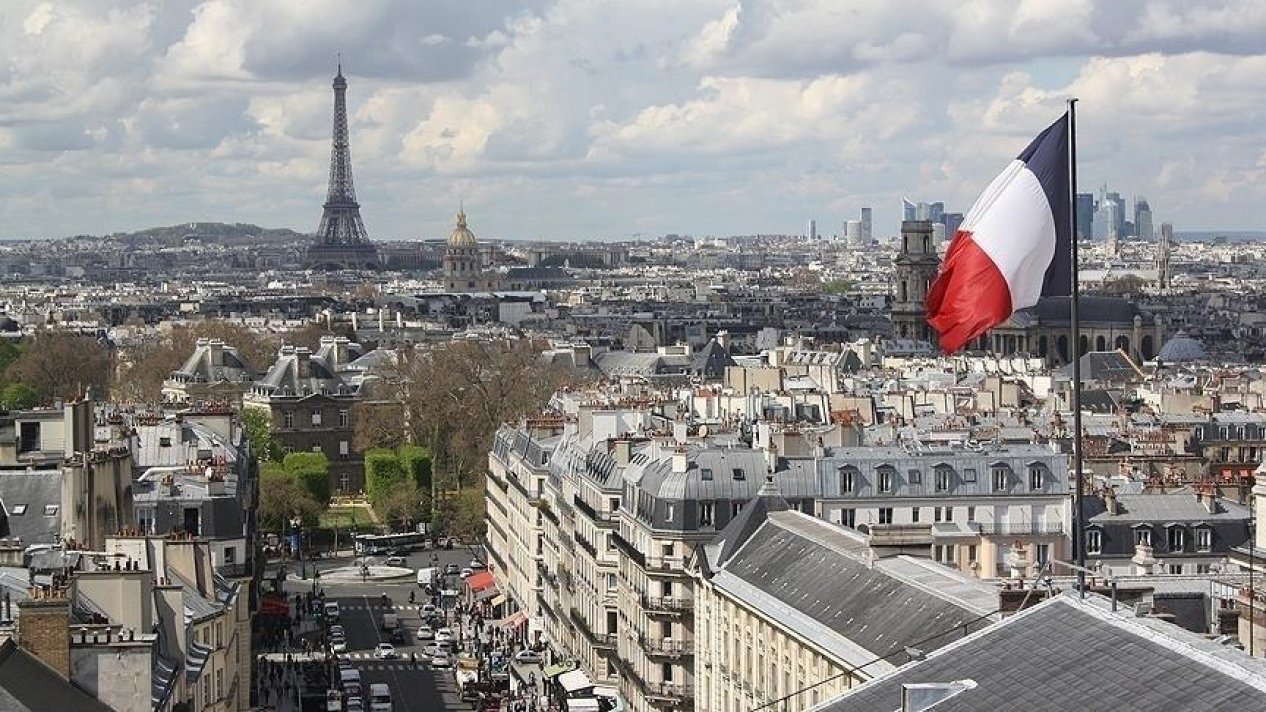
On November 12, President of the French Republic Emmanuel Macron made a phone call to President of the Republic of Azerbaijan Ilham Aliyev, Azertag informs.
The French President informed that he will meet with Armenian Prime Minister Nikol Pashinyan on the sidelines of the 18th Summit of the Organization of Francophonie to be held on November 19, and reiterated France's intention to contribute to the process of normalization of relations between Armenia and Azerbaijan.
During the phone conversation, the heads of state exchanged views on the results of the Prague meeting held in a quadrilateral format with the participation of Azerbaijan, Armenia, the European Union and France, as well as the issues arising therefrom.
President Ilham Aliyev noted the importance of demonstrating a neutral, impartial and balanced approach in the process of normalizing relations between Armenia and Azerbaijan. The head of state pointed out that the statements made by Armenia in recent days contradict the normalization of relations between the two countries and the peace agenda.
Azerbaijani President Ilham Aliyev said just a month ago that French President Emmanuel Macron, with his statement about the actions of the Azerbaijani Army on the border with Armenia, crossed out the history of friendly and balanced relations between France and Azerbaijan.
"We have always perceived the activities of previous French presidents, despite, of course, a certain factor of the Armenian diaspora in France, as balanced, but the current French leadership, in essence, crossed out all this," said the President during a meeting of the CIS Council of Heads of State in Astana.
Ilham Aliyev noted that the Azerbaijani embassy in Paris was attacked twice. According to the Azerbaijani President, during the telephone conversation, Mr. Macron promised to take measures so that the attacks would not be repeated. "But it turned out to be, to put it mildly, not true," Aliyev added.
Aliyev also accused Emmanuel Macron of trying to mislead the global community with statements that "Azerbaijan is waging a terrible war." He believes that "with such an attitude of the French Government," France does not have the opportunity to participate in the settlement of the Armenia-Azerbaijan conflict.
Faktyoxla Lab tried to make it clear whether France can demonstrate a neutral, impartial and balanced approach in the process of normalizing relations between Armenia and Azerbaijan, as well as to analyze the state of bilateral relations between France and Azerbaijan.
Let's start with the fact that French officials have repeatedly stated that their country has always recognized the territorial integrity of Azerbaijan and expressed confidence that cooperation between the two countries will continue to develop.
Actually, from a formal point of view, the Fifth Republic, as a subject of international law, a member of the UN Security Council, as well as a former co-chair of the so-called OSCE Minsk Group, designed to contribute to the settlement of the Armenian-Azerbaijani conflict, due to its status, of course, could not have acted differently.
Nevertheless, some events and facts represent a completely different state of affairs.
Let's leave aside the latest statements from France and remember what happened after the victory of Azerbaijan in the Second Karabakh War. It was then that the whole essence of the ongoing policy of official Paris in relation to this conflict was highlighted.
+++++
At an international conference at ADA University on April 13, 2021, President of Azerbaijan Ilham Aliyev described France's approach to the Armenian-Azerbaijani conflict as "unbalanced", in particular, answering a question from one of the participants, he spoke about the attempts of political pressure on Baku during the Second Karabakh War.
"We have always been committed to cooperation. But what happened happened. You are right when you say that France actively supported the territorial integrity of Ukraine, while not supporting the territorial integrity of Azerbaijan. I know what it's called, but I don't want to be rude," said the head of state.
Also, in April 2021, French Ambassador to Armenia Jonathan Lacôte, unequivocally taking a biased position, condemned the opening of the War Trophies Park in Baku in honor of Azerbaijan's victory in the Second Karabakh War.
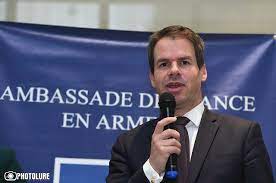
The ambassador described this exhibition of captured weapons and military equipment captured by the Azerbaijani Armed Forces from the Armenian military as "a theatrical performance unworthy of a winner." At the same time, he expressed respect for the “worthy defeat” of Armenia.
Commenting on this statement, the then spokesperson for the Azerbaijani Foreign Ministry Leyla Abdullayeva, in particular, said: “Will the ambassador of France, a country that has experienced many wars throughout its history and has displayed compositions related to these wars in various museums, and proceeding from the ambassador’s words ‘performances’, tell us what to do with the trophies taken from the enemy?!”
The ambassador's statement in Yerevan spoke clearly of France's partiality towards the parties to the Armenian-Azerbaijani conflict.
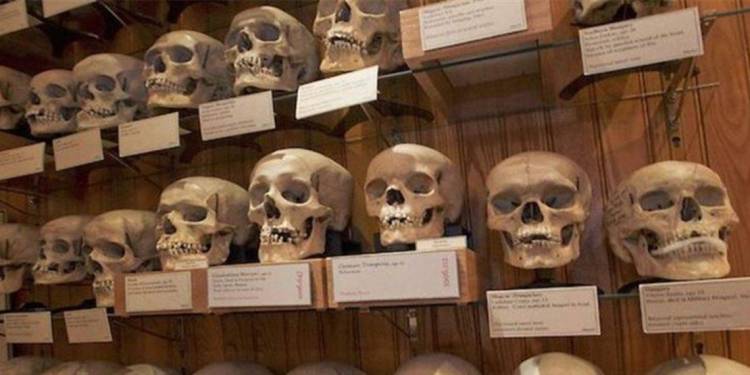
Against the background of the Musée de l'Homme (Museum of Mankind) in Paris, where the skulls of the fighters of the national liberation movement of Algeria, who died in the fight against the French colonialists about 60 years ago, are still displayed, this is very contrasting. Algeria, which declared independence on July 5, 1962, is still unsuccessfully trying to return the remains of its 24 martyrs for a decent burial. Also, the issue of nuclear testing in the territory of the former French colony still remains one of the most difficult diplomatic dossiers in relations between the two countries.
From the consequences of French nuclear tests in Algeria and Polynesia, more than 1,500 people suffer from cancer, many have died.
It should be noted in a series of our findings from among the unfriendly actions of Paris towards Baku at that time and the scandalous resolution of the Senate, dated November 25, 2020, subsequently supported by the National Assembly of France, containing a call to the government to recognize the independence of "Nagorno-Karabakh".
Already in early November of this year, information was circulated that the French Senate on November 15 would consider a resolution imposing sanctions against Azerbaijan and demanding the immediate withdrawal of Azerbaijani troops allegedly located on the territory of Armenia. The draft resolution has been published on the agency's website.
Interestingly, in 2020, the head of the French Foreign Ministry hastened to straighten up the French parliamentarians. Paris must remain neutral in relation to the conflict in Karabakh, said then Foreign Minister Jean-Yves Le Drian, speaking in the lower house of the French parliament.
"According to the mandate that the OSCE gave us, as well as Russia and the United States in 1994, France is obliged to remain neutral," the minister said, responding to MPs' calls to "take the side of Armenia" in the Nagorno-Karabakh confrontation. The minister explained that France would lose the status of a legitimate mediator if it supported one of the parties in the conflict. But as one can see, it was an ordinary theatrical production.
Meanwhile, French President Emmanuel Macron sided with Armenia against Azerbaijan and Turkiye even before the start of the war (Second Karabakh - ed.). Jamestown Foundation expert Vladimir Sokor writes in the Eurasia Daily Monitor.

The article notes that as early as August 30, Macron denounced Turkiye’s "warlike rhetoric" as encouraging Azerbaijan's "dangerous" territorial claims against Armenia (EurActiv, August 31). After the outbreak of the war, Macron used the opportunity of the European Union summit in Brussels to again attack Turkiye for its "reckless and dangerous" statements in support of Azerbaijan. In a rhetorical frenzy, he claimed that Turkiye had sent hundreds of Syrian jihadist fighters to join Azerbaijani forces (see EDM, 13 October). Macron called Russian President Vladimir Putin to share his suspicions (EurActiv, October 2). The French leader insisted on this ill-founded claim throughout the war and repeatedly brought it to the attention of Putin, the author notes.
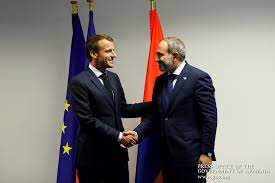
At the same time, at the end of November 2020, Macron publicly confirmed his country's position on recognizing the territorial integrity of Azerbaijan. According to international law, Karabakh and other adjacent regions are considered territories of Azerbaijan, the president said, urging not to interfere in this issue. Macron shared on his Instagram profile the corresponding video from a meeting with the Armenian community in France.
Also, the condescending, if not biased attitude of the French authorities, is evidenced by the fact of the direct participation of their citizens in the hostilities in Karabakh on the side of the Armenians.
By the way, in relation to the French citizens who fought in Karabakh, a preliminary investigation was allegedly launched in 2020. An article about this was published in the General Journal of Europe.
The author of the article, Sebastian Boussua, a specialist in the Middle East, a doctor of political sciences, writes that when hostilities began in Karabakh on September 27, 2020, dozens of Frenchmen went to the war zone to help the Armenian army to defend the separatist regime. The author reminded that most of these people are of Armenian origin, but they are citizens of France, and their actions are absolutely illegal.
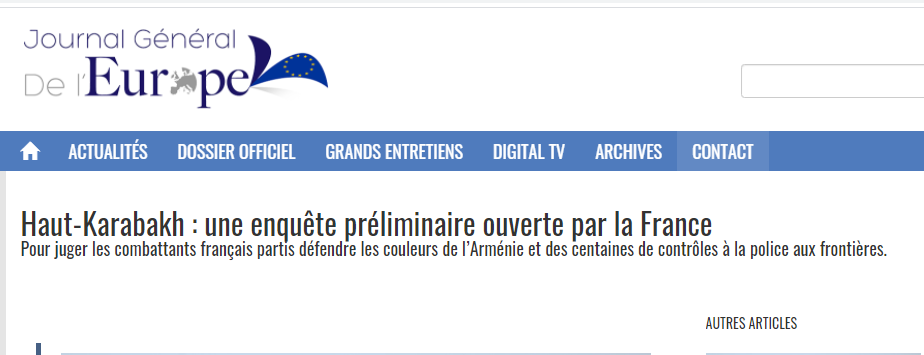
The information that French citizens fought on the side of Armenia in Karabakh was received already at the beginning of the Second Karabakh War, and supported by evidence.
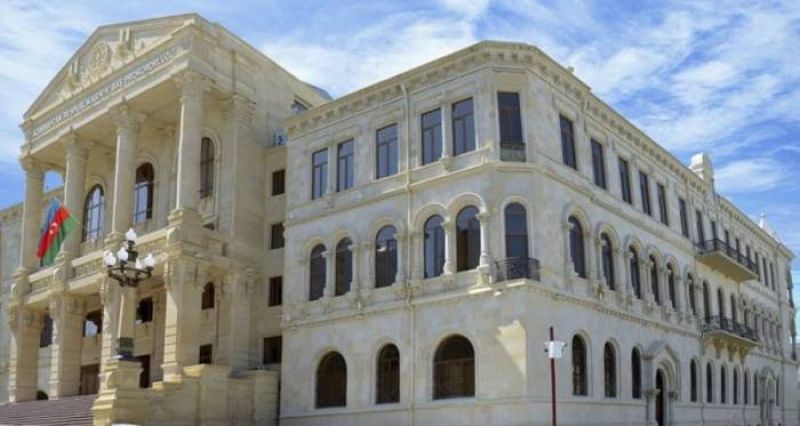
The Prosecutor General's Office of Azerbaijan opened a criminal case against two ethnic Armenians - citizens of France and Georgia for participating in hostilities as part of illegal armed formations on the border of Azerbaijan, the press service of the department reported at the time.
According to the information, French citizen Artur Hovhannisyan and Georgian citizen Vahagn Chakhalyan, having violated the Armenian-Azerbaijani state border, crossed to the occupied territory of Azerbaijan and joined the illegal armed formations of the Armenian Armed Forces.
“The investigation also revealed grounds for suspicion that these individuals were involved in terrorist activities against Azerbaijani citizens using illegally obtained firearms, ammunition and equipment. In this regard, a criminal case has been initiated under the following articles: aggressive war; attempted murder as part of a criminal organization; attempted murder on the principle of organizing a criminal community; attempted murder for the purpose of inciting national, racial, religious hatred or enmity; creation of illegal armed formations,” the report says. The Prosecutor General's Office sent requests for legal assistance to the competent authorities of France and Georgia, an intensive investigation is underway.
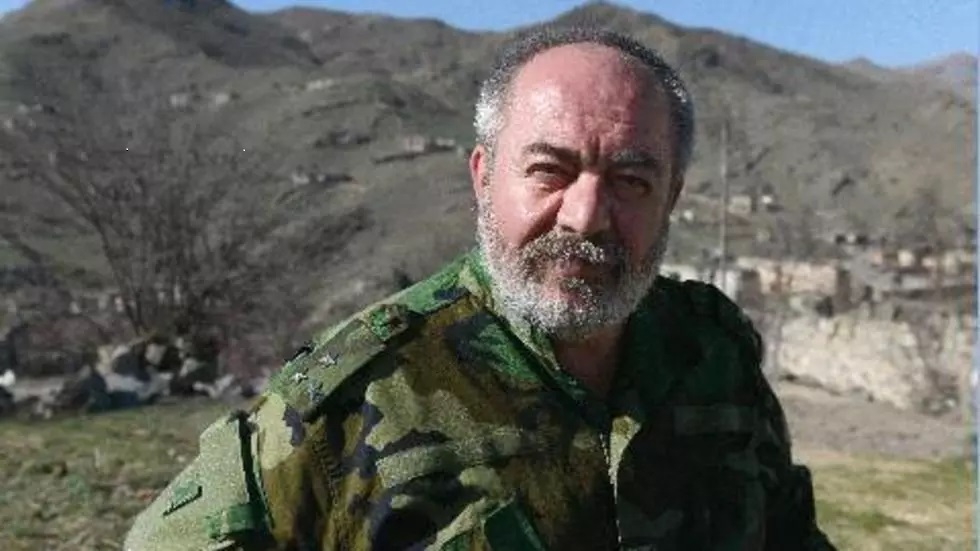
On October 14, 2020, the General Prosecutor's Office of Azerbaijan opened a criminal case against French citizen Gilbert Minasyan, a member of the terrorist organization ASALA, and a group of 15 people he leads for crimes committed in Azerbaijan.
According to the Prosecutor General's Office, Minasyan and his gang had combat experience. They entered into a criminal conspiracy with people in Armenia and in the occupied territories of Azerbaijan and arrived from Armenia in Khankendi and other occupied settlements, where they fought on the side of the illegal regime called the “Nagorno-Karabakh Republic”. A criminal case has been initiated, an investigation is underway.
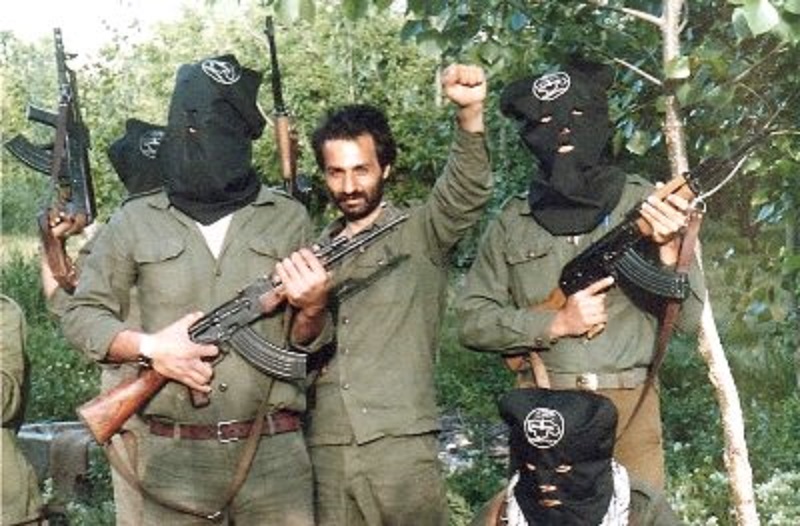
Minasyan, a member of the ASALA terrorist organization, was convicted in France in the 1980s for his repeated involvement in terrorist acts. It is reported that he narrowly escaped a life sentence, hiding in Armenia for many years.
On October 11, 2020, the French newspaper Liberation reported that 64-year-old Gilbert Minasyan came to Karabakh to fight on the side of Armenia.
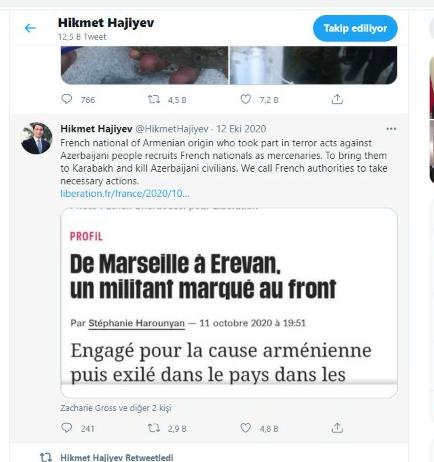
Assistant to the President of Azerbaijan Hikmet Hajiyev also shared a link to the article on Twitter and called on the French government to take appropriate action.
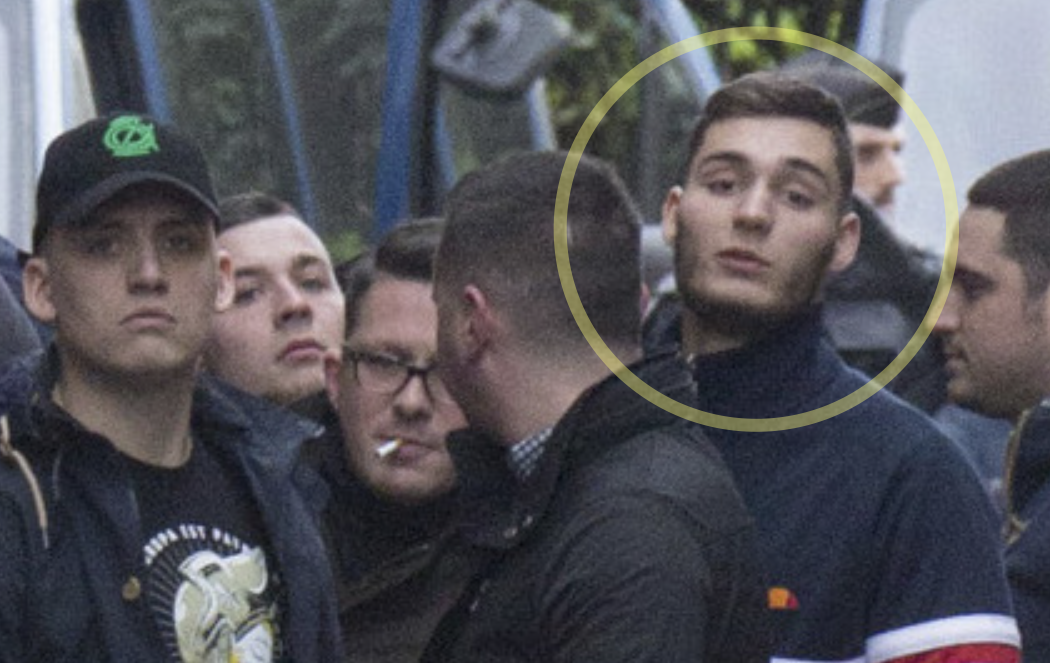
In addition, the General Prosecutor's Office of Azerbaijan opened a criminal case against the leader of the Zouaves Paris group, who took part in the hostilities against the Azerbaijani army in Nagorno-Karabakh. In a statement from the prosecutor's office dated November 4, 2020, it is said that during the investigation it turned out that Marc de Cacqueray Valmenier (French citizen and leader of the French extremist group Zouaves Paris (ZVP) was arrested in Paris for violent acts) and others ended up in Karabakh, Khankendi through Armenia, where they took part in the battles as mercenaries from the Armenian side. A criminal case has been initiated on this fact, and the General Prosecutor's Office of Azerbaijan has sent a request for legal assistance to the relevant state bodies of France.
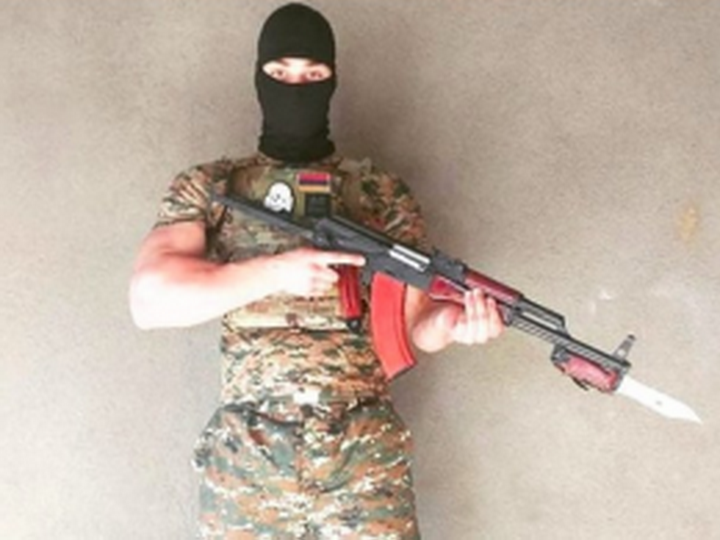
It is worth noting that on the eve of the Second Karabakh War, a photo of Valmenier in camouflage with a Kalashnikov assault rifle in his hands was circulated. In the photo, he has an Armenian flag on his chest - Nazi symbols of the SS of Nazi Germany. The photo says "Direction - frontline."

An article published in the French newspaper Liberation on November 30, 2020 stated that Valmenier unequivocally presented himself as a fascist.
Meanwhile, on November 20, 2020, after the Second Karabakh War, the Azerbaijani Embassy in France asked the French law enforcement agencies to investigate the fact that French citizens of Armenian and non-Armenian origin fought on the side of Armenia in Karabakh.
The Azerbaijani side also put on the international wanted list a number of foreign citizens who fought on the Armenian side in Karabakh. As Prosecutor General Kamran Aliyev said on November 30, 2020, six criminal cases have been initiated on their participation in hostilities on the Armenian side in the zone of the Nagorno-Karabakh conflict.
The Azerbaijani side regarded the arrival of French citizens in Karabakh to participate in hostilities on the Armenian side as a violation of the Azerbaijani border. In this regard, the Prosecutor General's Office stated that the arrival of these people from Armenia to Karabakh is contrary to the requirements of the Law "On the State Border of the Republic of Azerbaijan" and the Migration Code. It was also regarded as an attack on the territorial integrity of Azerbaijan, a violation of the state border, recognized by the resolutions of the UN Security Council at the international level.
The report in the French press about the presence of French citizens in Karabakh during the war to help the Armenian army reflects the reality. Also true is the assertion of the author of the article, Sebastian Boussua, that despite their Armenian origin, these French citizens acted absolutely illegally.
Further, there is a lot of information online about the close ties of French intelligence (General Directorate of External Security of the French Defense Ministry) with Armenian terrorists, their cooperation in the plane anti-Turkish activities.
According to Russian military analyst Alexander Artamonov, French intelligence has been actively working in Armenia all the time, inciting revanchist sentiments.
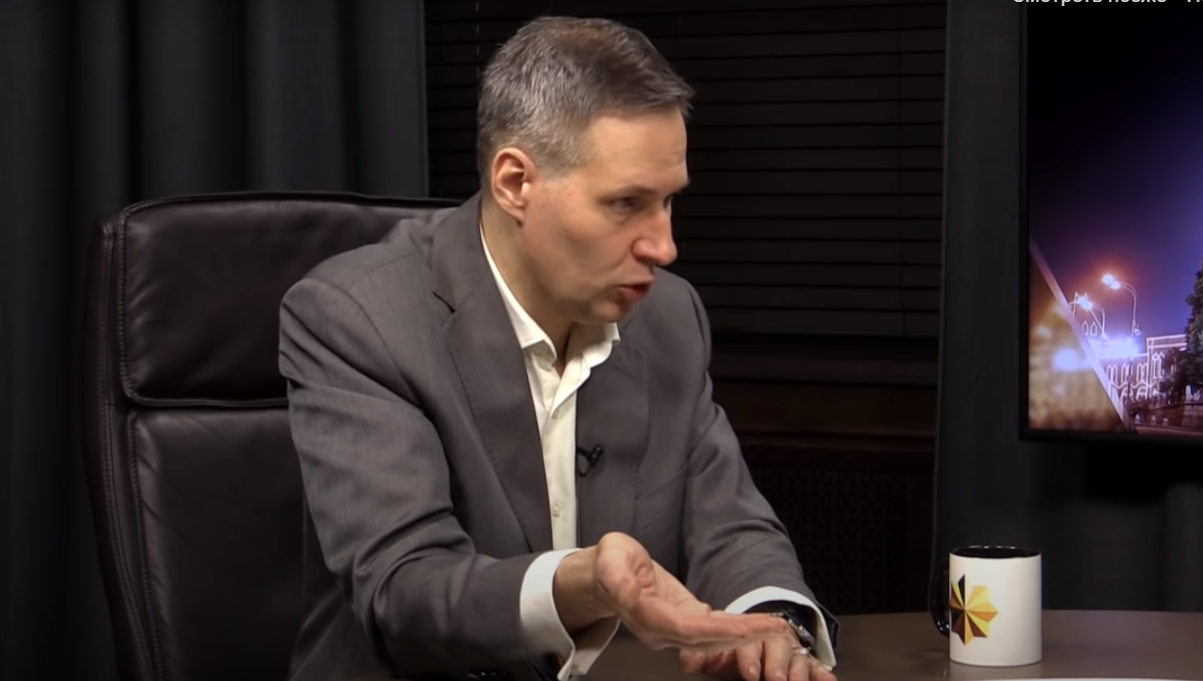
Now (in 2021 - ed.) Western intelligence officers, including French intelligence, are on the territory of Armenia, who are trying to "muddle the waters", and "extremist groups sent from Western Europe are pursuing the goal of fanning the conflict," Artamonov believes.
According to Nezavisimaya Gazeta, one of the leaders of the protest movement for the change of the current government of Nikol Pashinyan, field commander of the first Karabakh war, head of the Sasna Tsrer paramilitary organization, Zhirayr Sefilyan, who put forward an ultimatum to the authorities and proclaimed Armenia “from the Kura to the Araz”, also closely associated with French intelligence. Thus, the organizations he founded advocated the withdrawal of Armenia from the CSTO and the EAEU and the closure of the Russian military base in Gyumri. His agenda completely coincided with the guidelines of the Western intelligence services to create anti-Russian sentiment in the direct sphere of influence of Moscow. It is no coincidence that he was released by the Pashinyan government, which also created conditions for Sefilyan to legally engage in political activity and participate in parliamentary elections, the Russian edition writes.
Returning to the subject of our analysis, we note that many actions and political statements of Paris, unfortunately, indicate that we can only hope that France will be able to demonstrate a neutral, impartial and balanced approach in the process of normalizing relations between Armenia and Azerbaijan.




















